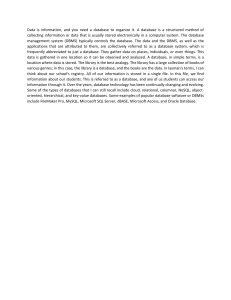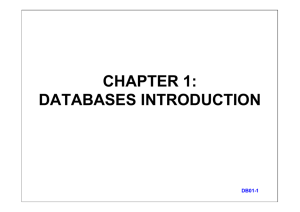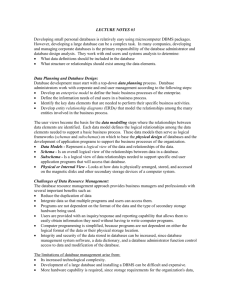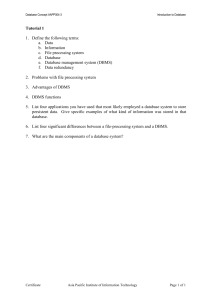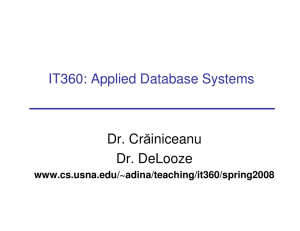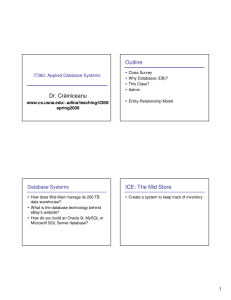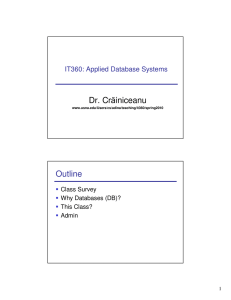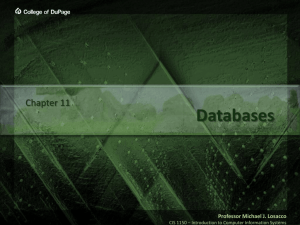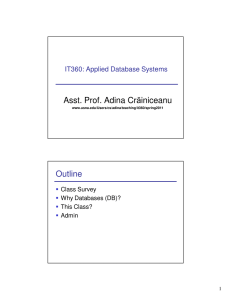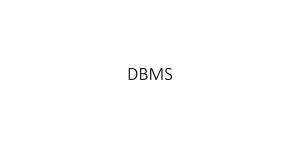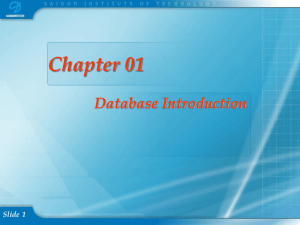Database Management Systems - University of Hawaii at Hilo
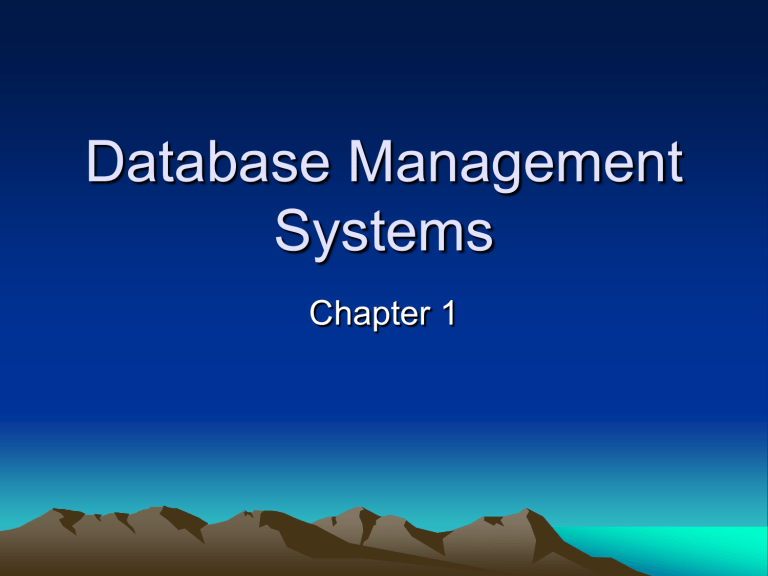
Database Management
Systems
Chapter 1
Introduction
• What is a database?
• What is a database management system
(DBMS)?
Remind me to tell you about this: http://msdn.microsoft.com/vstudio/express/v wd/
Database development Challenges
• Conserving space
• Retrieving data rapidly
• Sharing data
• Providing backup and recovery
Application Development
• Feasibility – identify scope, costs, and schedule
• Analysis – gather information from users
• Design – define tables, relationships, forms, reports
• Development – create forms, reports, and help; test
• Implementation – transfer data, install, train, review
Components of DBMS
• Database engine
• Data dictionary
• Query processor
• Report writer
• Forms generator
• Application generator
• Communication and Integration facilities
• Security facilities
Advantages of DBMS
• Minimal data redundancy
• Data consistency
• Integration of data
• Sharing of data
• Enforcement of standards
• Ease of application development
• Uniform security, privacy, and integrity
• Data independence
Brief History of DBMS
• Hierarchical databases
• Network databases
• Relational databases
• Object-oriented databases
Object Oriented
For more information visit this website:
• http://java.sun.com/docs/books/tutorial/jav a/concepts/index.html
